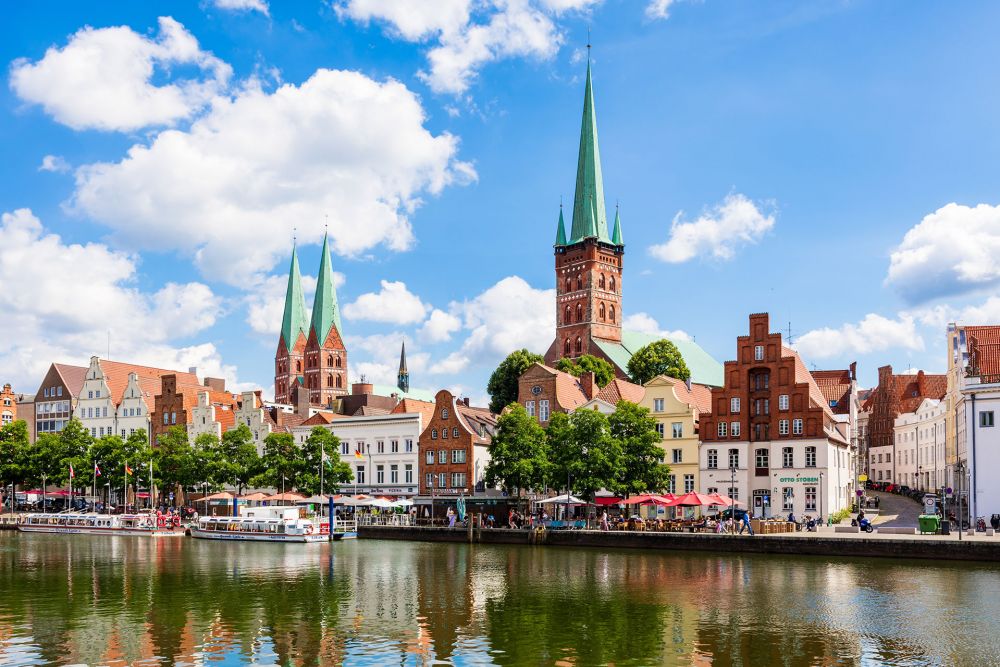German legislation provides unique opportunities for persons of German origin to obtain citizenship as part of the recognition procedure for late migrants (Spätaussiedler). The repatriation process is based on proof of German roots. The candidate must confirm kinship with Germans, language proficiency and residence in the regions of origin.
The key regulatory act remains the Federal Law “On Migrants” (BVFG), adopted on May 19, 1953. The document regulates the status of late migrants (Spätaussiedler). They automatically receive citizenship upon recognition of their right to repatriation. Additionally, the Law “On Citizenship” (StAG) and Article 116 of the “Basic Law” of the Federal Republic of Germany are in force.
Advantages of German citizenship
- High level of security in the country.
- No need to renew residence permits.
- Visa-free regime in the EU.
- Visa-free travel around the world.
- Simplified obtaining of visas for travel to countries where a visa is required.
- Access to the financial sector and economic opportunities.
- Easier access to low-interest loans.
- Free access to all professions.
- Equal rights in social security systems.
- Electoral rights.
- Comprehensive social protection.
- Benefits and social support. Including child birth benefit (Elterngeld) and unemployment benefit (Arbeitslosengeld).
- Access to quality education.
- Simplified family reunification.
- Consular protection abroad.
Categories of persons eligible for the status of a late migrant
The legal grounds for repatriation to Germany are fixed in the Federal Law “On Migrants” (BVFG). In accordance with this regulatory legal act, several grounds are provided.
Persons born before 31.12.1923
Germans born before December 31, 1923, represent a special category of applicants for German citizenship under this program. This group of people (called “Frühgeborene”, i.e. the illegitimate) has simplified requirements for confirming their membership in the German people.
The category falls within the scope of section6 BVFG, subject to documentary proof of origin. Simplified rules apply to this group. It is enough to prove belonging to the German people through ancestral metrics issued before 1945. According to the law, an ethnic person is recognized as one “who recognized belonging to the German people in his homeland, if this recognition is confirmed by certain signs, such as origin, language, upbringing, culture.”
Descendants of Germans according to Article 6 BVFG
The criteria of the article include proof of ethnicity through:
- Nationality in the passport of the USSR/CIS with the mark “German”.
- Baptismal certificates in German.
- School certificates with the study of German as a native language.
Descendants of article 4 BVFG
The main category is those born before 01.01.1993 in the countries of the former USSR. A prerequisite is the permanent residence of the ancestors in the territories of the German diasporas until 1952. The evidence base includes archival certificates of deportation, workbooks indicating nationality, correspondence with relatives in the GDR/FRG.
Descendants of late settlers according to article 27 BVFG
Those born after 01.01.1993 can apply for the status only through inclusion in the parents’ application. For adults, a B1 language level and no criminal record are required.
A special case is children from mixed marriages. The courts recognize the right to repatriation even with 25% German blood, if cultural identification is confirmed (participation in ethnic communities, knowledge of traditions). Such cases are characterized by an extended review period (up to 14 months versus the standard 8).
Repatriation for persons of Jewish origin
The legal basis of the program is set out in section 23 of the Residence Act (AufenthG) and the departmental regulations of May 4, 2007. Evaluation criteria for candidates include:
- The presence of at least one Jewish parent or grandparent, confirmed by pre-war documents (birth certificates, marriage certificates, party registration cards).
- Language proficiency at A1 level (for those born after 1945).
- Lack of links with communist regimes (positions above the district level in the CPSU, service in the KGB).
Special conditions apply to victims of Nazism. Persons born before January 1, 1945 are exempt from language testing and financial viability checks. However, since 2024, the requirements for family reunions have been tightened. Spouses must have been married for at least 36 months, and children over the age of 14 must pass the A1 level exam.
Restoration of citizenship under articles 13 and 15
Section 13 of the Citizenship Act (StAG) applies to former German citizens. This procedure has been simplified since 2024. Applicants who lost their passport after January 1, 2000 due to acquiring foreign citizenship can regain their status without having to reside in Germany. The conditions include proof of previous citizenship, no previous convictions for serious crimes, and proficiency in German at the B1 level.
Victims of Nazi repression and their descendants are rehabilitated through §15 StAG. Application acceptance criteria:
- Deprivation of citizenship in the period 1933-1945.
- Belonging to the Jewish community or political dissidents.
Starting in 2021, restrictions on the date of birth of ancestors have been lifted. Now the great-grandchildren of victims of repression have equal rights. The evidence base includes archival certificates of deportation, extracts from concentration camps, or baptismal certificates in synagogues.
Requirements for applicants
Proof of German origin requires the provision of documents issued to relatives before 1945. These can be birth certificates, marriage metrics, military ID cards indicating nationality. For those born after 1950, school certificates with the study of German as their native language or correspondence with relatives in the GDR/FRG are additionally accepted. Archival information about the deportation of ancestors increases the chances of approval.
The language criteria are divided into categories:
- The main applicants (born before 1993) confirm the B1 level through a Goethe-Institut certificate or testing at the consulate.
- Spouses and adult children take the A1 exam. The exception is people over 65 years of age or with medical contraindications.
- Descendants included in the parents’ application after 1993 are required to speak the national language at the B2 level.
Only those born before January 1, 1993 are eligible for repatriation. For younger applicants, there are exceptions when proving cultural identity (for example, the presence of first-line relatives with German citizenship). The region of residence also affects the package of documents being collected. Applicants from the Baltic States, Poland and the Czech Republic are required to provide certificates of discrimination on the basis of nationality after 1945. For people from Kazakhstan and Russia, it is enough to confirm their residence in places where Germans are densely settled.
Application procedure
The preparatory stage begins with the collection of documents confirming the origin. Next, the applicant must complete the following steps.
- Application submission (Antrag). It is carried out through consulates or the BVA online portal. The Antrag S form is used for immigrants from the former USSR, and the Antrag A form is used for residents of Eastern Europe. It must be filled in in German, without errors.
- Interview and language testing. They are held in German consulates. The main applicants take an oral exam at the B1 level, the spouses – A1.
- Obtaining a visa. It requires the provision of a positive decision, which is issued to the applicant for the status of a “late migrant” (Aufnahmebescheid) from the BVA and medical insurance with 30,000 € coverage.
- Transfer and registration. They begin with the direction to the Friedland camp. During the 14 days of stay, the displaced persons undergo a medical examination, receive a Sozialversicherungsnummer and distribution across the federal lands.
- Applying for citizenship. At the local migration department. The average period for issuing a passport is 4 months.
Controversial situations
Appeals against refusals are possible subject to compliance with regulatory deadlines. An administrative protest (Widerspruch) is submitted to the Federal Administrative Agency (BVA) within 1 month from the date of receipt of the refusal. A similar period is valid for a judicial challenge (30 days after the rejection of the BVA protest). Claims are sent to the administrative court at the place of registration of the department.
The procedure provides for a review of the request based on:
- Newly identified archival documents (metrics, deportation certificates).
- Certificates of knowledge of dialects (for example, Low German).
- Evidence of participation in ethno-cultural communities.
Assistance in obtaining German citizenship

- We will answer all your questions
- We will help you choose the best option
- We will guide you through every step or do everything for you
Professional support minimizes the risk of rejection. Therefore, contacting specialized specialists is a rational choice for those who value time and strive to avoid delays. Our company’s experts have a deep understanding of German migration legislation. Leave a request to receive professional advice or provide yourself with comprehensive support at all stages.












